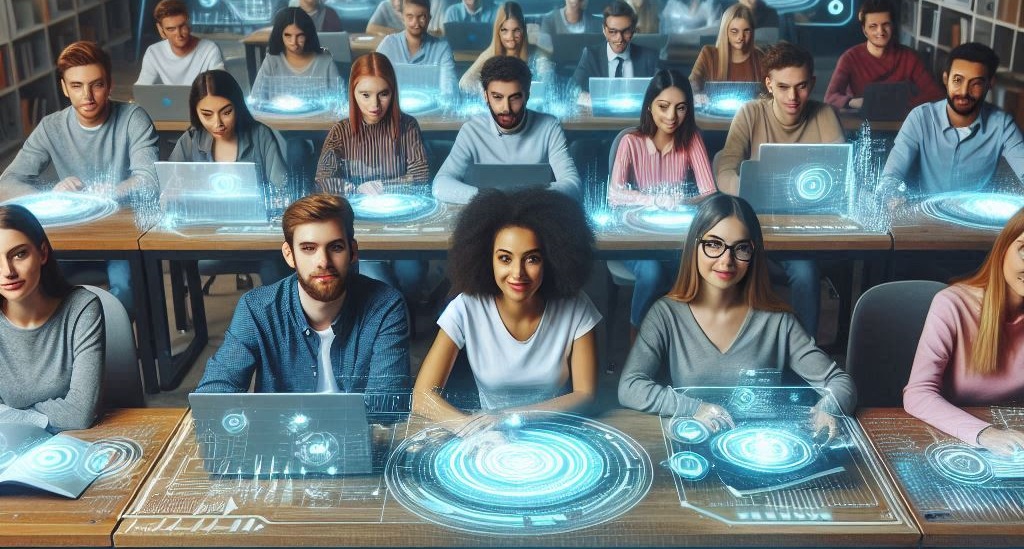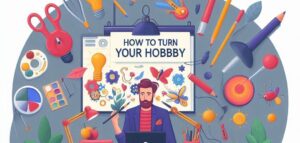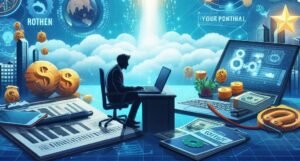In the evolving landscape of education, personalized learning platforms are reshaping the way we approach teaching and learning. As technology continues to advance, educational institutions, businesses, and individual learners are increasingly turning to these platforms to provide tailored educational experiences that cater to individual needs and preferences.
Read More: Health and Wellness Coaching: Empowering Individuals to Live Their Best Lives
This article explores the significance of personalized learning platforms, their benefits, challenges, and the future of personalized education.
What Are Personalized Learning Platforms?
Personalized learning platforms are educational technologies designed to tailor the learning experience to the needs, strengths, and interests of individual learners. Unlike traditional one-size-fits-all approaches, these platforms use data and algorithms to customize learning paths, resources, and activities. The goal is to optimize the learning process by addressing the unique requirements of each learner.
The Rise of Personalized Learning
The shift towards personalized learning is driven by several factors:
Advancements in Technology: Innovations in artificial intelligence (AI), machine learning, and data analytics have made it possible to collect and analyze vast amounts of educational data. This data can be used to understand individual learning patterns and preferences, allowing for more personalized instruction.
Increased Demand for Customization: Learners today have diverse needs and learning styles. Personalized learning platforms cater to these needs by providing content and learning experiences that align with each learner’s unique requirements.
Focus on Student Engagement and Achievement: Personalized learning aims to improve student engagement and outcomes by making learning more relevant and interactive. When learners are presented with content that resonates with their interests and learning styles, they are more likely to stay motivated and achieve better results.
Key Features of Personalized Learning Platforms
Adaptive Learning Paths
Adaptive learning technology adjusts the learning path based on the learner’s performance. If a student excels in a particular area, the platform can accelerate their progress in that subject. Conversely, if a learner struggles, the platform can provide additional resources and support to help them improve.
Customized Content
Personalized learning platforms offer content tailored to the learner’s level, interests, and goals. This customization can include interactive lessons, multimedia resources, and practice exercises that align with the learner’s needs.
Real-Time Feedback and Assessment
These platforms often include tools for real-time feedback and assessment. Learners receive immediate insights into their performance, which helps them understand their strengths and areas for improvement. This instant feedback is crucial for maintaining motivation and guiding further learning.
Learning Analytics
Advanced analytics tools track and analyze learner behavior, performance, and progress. Educators and learners can use these insights to make data-driven decisions, identify trends, and adjust learning strategies.
Flexible Learning Environments
Personalized learning platforms can be accessed from various devices, allowing learners to engage with content anytime and anywhere. This flexibility supports diverse learning preferences and schedules, making education more accessible.
Benefits of Personalized Learning Platforms
Enhanced Learner Engagement
Personalized learning platforms can increase engagement by providing content that aligns with learners’ interests and learning styles. This relevance makes the learning experience more enjoyable and motivating.
Improved Learning Outcomes
Tailored learning experiences can lead to better understanding and retention of information. By addressing individual needs and providing targeted support, personalized learning platforms help learners achieve their educational goals more effectively.
Greater Flexibility and Accessibility
These platforms offer flexible learning options that cater to different schedules and learning preferences. This flexibility is particularly beneficial for non-traditional learners, such as working professionals or students with diverse needs.
Efficient Use of Resources
Personalized learning platforms help optimize the use of educational resources by focusing on areas where learners need the most support. This targeted approach can lead to more efficient learning and resource allocation.
Challenges and Considerations
Data Privacy and Security
With the use of extensive data collection comes the responsibility of safeguarding that data. Educational institutions and platform providers must ensure robust data privacy and security measures to protect sensitive learner information.
Equity and Access
While personalized learning platforms offer many benefits, there is a risk of widening the digital divide. Ensuring equitable access to technology and resources is essential to prevent disparities in educational opportunities.
Implementation and Integration
Integrating personalized learning platforms into existing educational systems can be challenging. Institutions need to consider factors such as training for educators, compatibility with existing tools, and curriculum alignment.
Cost and Investment
Developing and maintaining personalized learning platforms can be costly. Institutions and businesses must evaluate the return on investment and explore funding options to support the implementation of these technologies.
The Future of Personalized Learning
The future of personalized learning is promising, with ongoing advancements in technology and educational research. Emerging trends include:
AI and Machine Learning
AI and machine learning will continue to play a significant role in enhancing personalized learning. These technologies will become more sophisticated, enabling even greater customization and adaptive learning experiences.
Integration with Virtual and Augmented Reality
Virtual and augmented reality (VR and AR) have the potential to create immersive and interactive learning experiences. Integrating VR and AR with personalized learning platforms could offer new ways to engage learners and explore complex subjects.
Growth of Data-Driven Insights
As data analytics tools become more advanced, personalized learning platforms will be able to provide deeper insights into learner behavior and performance. This data will inform more effective instructional strategies and support mechanisms.
Increased Collaboration and Social Learning
Future personalized learning platforms may incorporate more collaborative and social learning features, allowing learners to interact with peers, mentors, and experts in real-time. This social aspect can enhance the learning experience and foster a sense of community.
Conclusion
Personalized learning platforms represent a transformative shift in education, offering tailored experiences that cater to individual needs and preferences. As technology continues to advance, these platforms will become increasingly sophisticated, providing even greater opportunities for personalized and effective learning.
While challenges remain, the potential benefits of personalized learning are significant, promising to enhance engagement, improve outcomes, and make education more accessible for all. Embracing these innovations can lead to a more dynamic and inclusive educational landscape, preparing learners for success in an ever-changing world.








